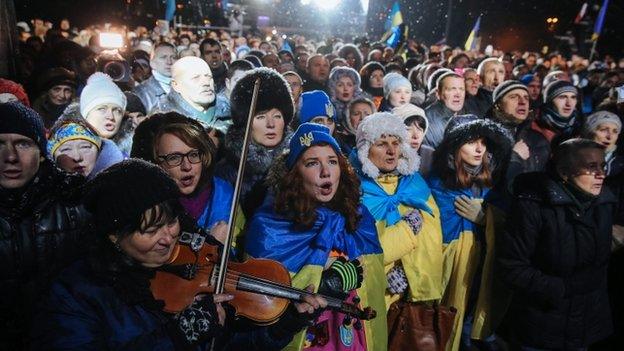Baltic states shiver as Russia flexes muscles
- Published
- comments
Katya Adler asks some Lithuanians how they feel about the prospect of being conscripted to protect their country
"The West talks so much about the impending threat of attack by Russia on the Baltics. We're afraid this will just make it more likely that Putin will do something!"
22-year-law graduate Lukas Borusevicius and his friend Laurynas Juozapaitas came to meet me in a pub in Vilnius to discuss relations with Russia and Lithuania's sudden re-introduction of military conscription.
The violence in Ukraine and fear of regional spillover have come as quite a shock here. The 25 years since breaking away from the Soviet Union have been relatively peaceful. Until now.
Russia has been holding increasingly frequent snap military drills near its eastern European neighbours, not to mention overflights and naval exercises in the Baltic Sea.
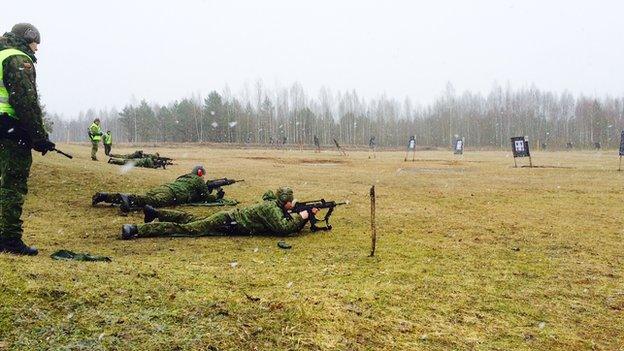
In Lithuania, a "war manual" has been hastily put together as the country reintroduces military conscription
A Lithuanian "war manual" has been hastily put together. It's available in all public libraries.
"Keep a sound mind, don't panic and don't lose clear thinking," the manual explains. "Gunshots just outside your window are not the end of the world."
Cyber warfare
Lukas and Laurynas had been busily planning their upwardly mobile careers - but now they may have to swap sharp-looking suits for military fatigues.
"All my friends are talking about it, on the phone, on Facebook. There's even a new website here called - 'Will You Be Drafted?'" Lukas says.
"But I will go. I think even people who say they won't will help if the aggression starts. My grandfather fought for freedom. My father fought for Lithuanian independence, so it's in my heart to fight for my country."
Those most panicked here liken the sound of Nato jets policing the skies to the sound of freedom.
But it is unlikely that Russian President Vladimir Putin will roll his tanks into the streets of the Baltics any time soon.
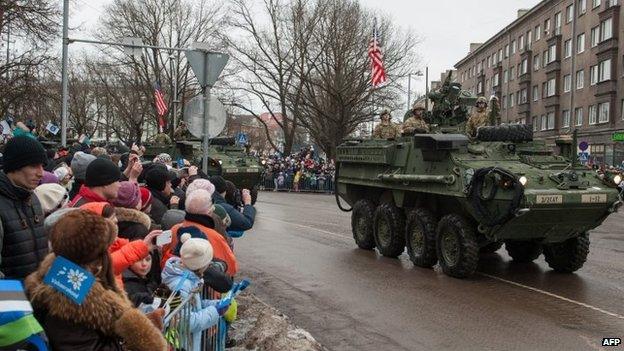
Last month, US troops took part in a military parade in Estonia's city of Narva - on the border with Russia
Estonian Prime Minister Taavi Roivas told me it would be "insane" for anyone to attack them in a conventional military way, because "Estonia or Latvia or Lithuania are as much in Nato as Great Britain or the US".
But the Baltic nations say they are already under attack from Russia by non-conventional means, such as cyber warfare and Russian propaganda, mainly on TV channels watched by the sizeable Russian-speaking minority in Latvia and Estonia.
Money talks
I can't help thinking we are all falling for an element of this propaganda. Vladimir Putin is spooking Europe with his audacity, aggression and unpredictability.
Invading and annexing the three Baltic states would be too costly and far too dangerous for him. Spreading fear is far easier, as is exacerbating divisions between the Baltics' Russian speakers and the rest of the population.
And it's not just here, at the edges of Europe, that President Putin is meddling.
He never gave up on Russia's wider sphere of influence, even after the break-up of the Soviet Union.
He doesn't view individual European countries as a particular threat, but rather the European Union as a whole, that some former Soviet republics are now part of.
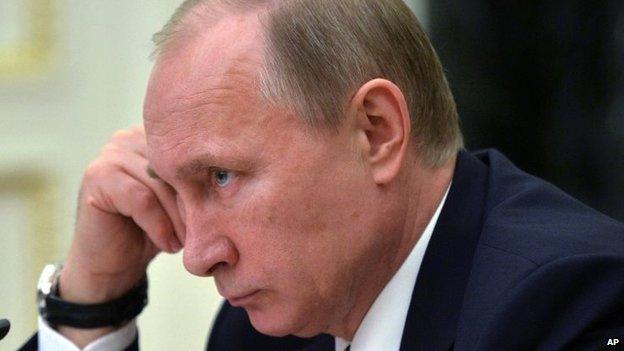
President Putin has described the collapse of the USSR as a "major geopolitical disaster"
And so he exploits existing cracks and seeks leverage and influence in Europe through Russia's exports of natural gas, cultivating relations with increasingly popular far-left and far-right parties in Europe (Austria's Freedom Party, France's National Front to name a couple) and with Russian investment.
Money talks particularly loudly in smaller countries like Cyprus and Slovakia. It won't have passed President Putin by that the EU needs unanimity to pass any new sanctions against Russia.
For its part, Russia accuses the West of propaganda and expansionism. It says Nato is using the situation in Ukraine as an excuse to move closer to Russian borders.
On Friday, as EU foreign ministers meet in Latvia to discuss Russia and Ukraine, Russia is holding large-scale military exercises in annexed Crimea as well as breakaway regions of Georgia, while Nato launches a major simulated warfare exercise in the Black Sea.
It's not going to make people in the Baltics feel much assured.
- Published6 March 2015
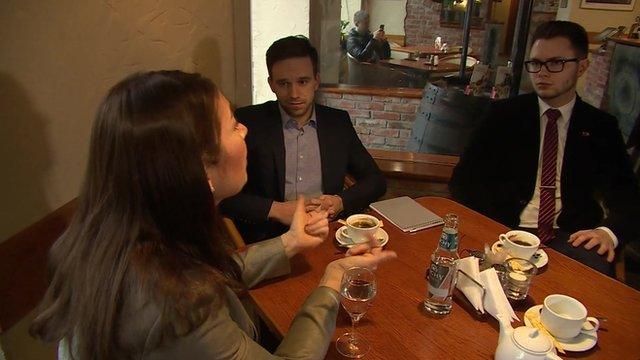
- Published2 March 2015
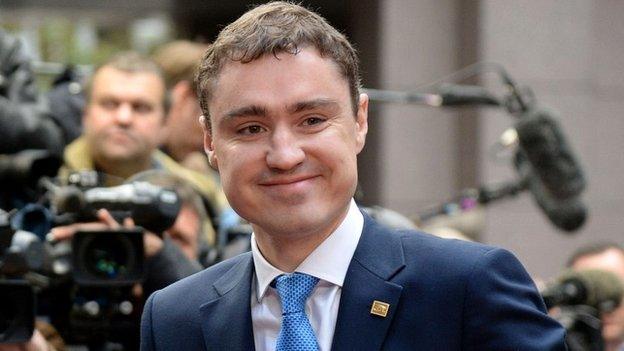
- Published4 December 2014
